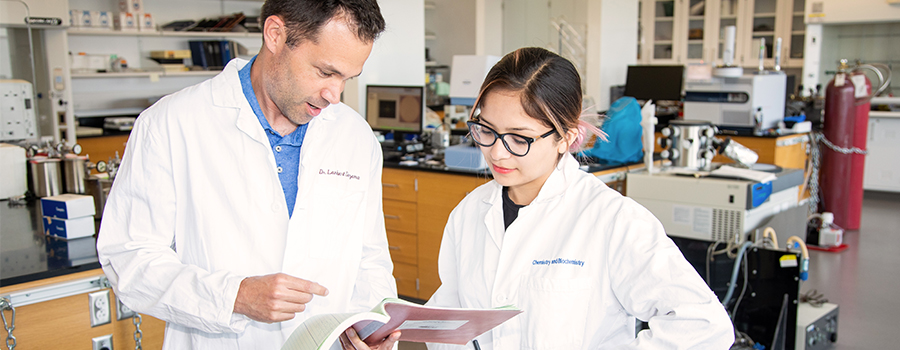Typical Courses
- General Chemistry I & II (lecture and lab) (8 units)
- Organic Chemistry I & II (lecture and lab) (8 units)
- General Biology I & II (lecture and lab) (10 units)
- General Physics I & II (lecture and lab) (8 units)
- Biochemistry (lecture) (3 units)
- Calculus (if not completed prior to matriculation) (3 units)
- Health Professions Advising (I, II) (0 units). Students are not charged for this course.
- Optional: General Psychology (4 units), Principles of Sociology (4 units), Statistics (4 units)
- Other upper division science courses with approval (units vary, most will be 3-4 units)
Students who enter the program having already fulfilled one or more of the lower division requirements will have the option of taking more of the recommended upper division courses based on their academic history and subject to approval from the program director and faculty.
Courses are taught by LMU professors, which allow students to establish close relationships with faculty. Post-Baccalaureate students take courses with LMU undergrads and a typical class size is less than 30 students.
Sample Curriculum
Each student's schedule may be different based on the science courses he/she took prior to the program.
- Summer Session I - General Chemistry I with lab
- Summer Session II - General Chemistry II with lab
- Fall Semester - General Biology I with lab, General Physics I with lab, Organic Chemistry I with lab, Health Professions Advising I
- Spring Semester - General Biology II with lab, General Physics II with lab, Organic Chemistry II with lab, Health Professions Advising II
- Summer Session I - Biochemistry
Special Academic Policies
- This program has two special academic policies that are unique to this program.
- To maintain enrollment in this post baccalaureate program, students are required to maintain no less than a 3.3 GPA.
- Students in the traditional 14 month program are expected to maintain full time (12 units) course enrollment throughout each term they are enrolled (some exceptions may apply).
